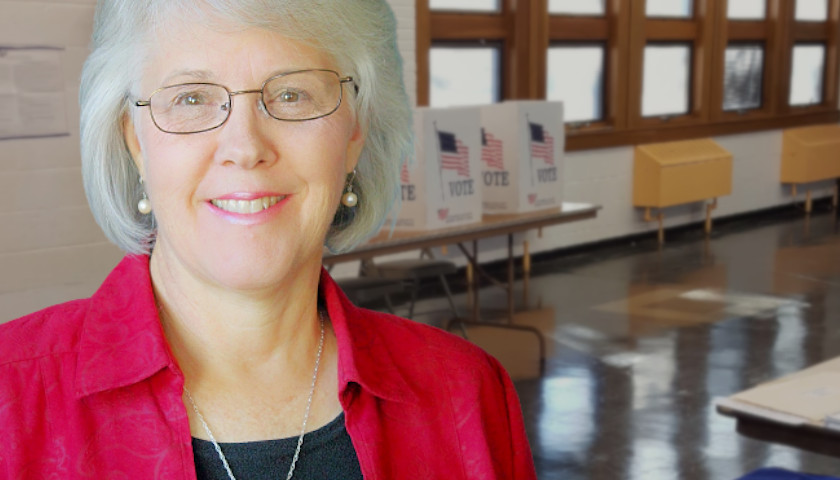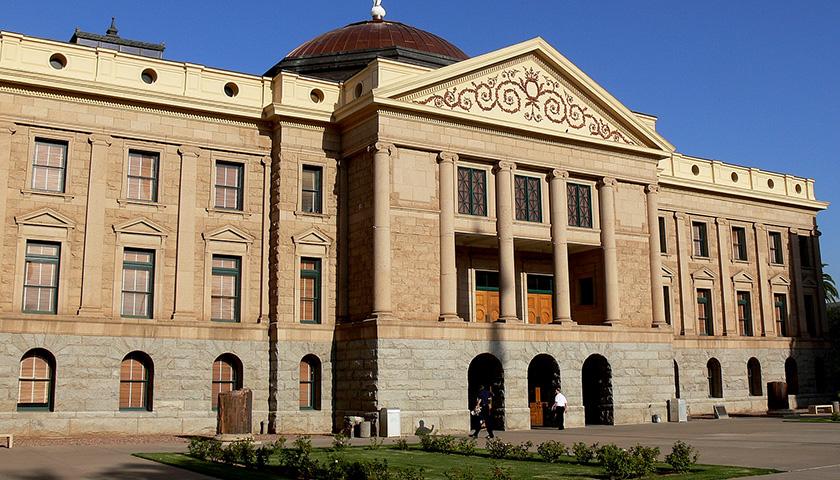Election integrity is one of the most important issues to Republicans in Arizona, and so when some Precinct Committeemen in Legislative District (LD) 12 thought Maricopa County Republican Chair Mickie Niland dismissed concerns about it, they censured her. PC Lawrence Hudson wrote the censure, which he said passed by about 95-5.
Dan Farley, who is one of the key grassroots organizers for Precinct Committeemen in Arizona and Chair of LD 4, told The Arizona Sun Times he supports Niland because of her tireless work to help the county double involvement from patriots into the party in less than a year and the meticulous work she has done throughout her term.
“While I generally view Hudson as a patriot, I disagree with him on this,” he said.
The censure states, “We hereby resolve to censure Mickie Niland, our county chairman, for her apparent bias against election integrity, and, therefore her inability to lead an organization for whom election integrity is very, very important.” The censure then lists five examples of how Niland allegedly blew off election integrity issues:
- By December last year, at the last EGC meeting before the January meeting, the EGC had still not decided how voting would work. Mrs. Niland wanted the board to agree to electronic voting. By delaying, she may have thought we would have no choice; but she lost the motion by a wide margin, something like 20-4. After a loss like that, with so little time left that paper balloting became an heroic effort, she should have called for a vote of confidence in her leadership. She did not.
- At the most recent EGC meeting on April 5 she appeared to delight in the results of a poll taken by the RNC to measure what voters care about. She declared that ‘election integrity does not matter to our voters,’ but then she appeared to be surprised at the RNC’s own admission, later in the meeting, that they did not ask any polling questions about election integrity.
- She refuses to recognize any board member who wishes to question her decisions.
- She decided, without asking her board, that work on data analytics could be done only by the Executive Director, Pat O’Malley. This decision means no work will be done on the data analytics of election integrity.
- She warned me, when I ran last fall for Member at Large, that my proposal to introduce all PCs to the county data — which is superior to gopdatacenter — would violate a contract between the GOP and the county. She refused to show me the contract. I FOIAed the county, asking for all contracts between it and any political party. The county said there were none. She explained to me today that the reason the County found no contracts is that the contract is between the county and her, personally. The idea that there could be any ‘secret’ contract between the County and any political party is suspicious. A personal contract is worse. If the contract restricts the use of data that is provided to us under statute, it is intolerable. We must see the contract.
Farley responded to the accusations with explanations. Niland conducted the meeting appropriately for the members of the Executive Guidance Council (EGC) to debate what process would be used for the annual county election. Electronic voting had been used by the party in the past during COVID-19 and had advantages of time efficiency, less volunteers needed and ballots not needing to be printed. The EGC decided on paper ballots and the county party proceeded accordingly.
As for Niland’s remarks about election integrity and polling, Farley said this was referring to a GOP poll of independents that found they did not label election integrity as a key issue. Niland was merely saying that when approaching independents to register them to vote, PCs might want to emphasize other things like inflation and the southern border as a way to bring them into the Republican Party.
The dispute over accessing voter registration data boiled down to Niland’s concern that providing raw voter data from the county to PCs might violate privacy laws. Farley said it is his understanding that she is constrained by laws from making it publicly accessible to everyone.
Hudson told The Arizona Sun Times how imperative this voter data is for PCs. “When we recruit new PCs, it is essential to verify they are Republicans and that they have a history of voting,” he said. “Many people think they are Republicans but are actually registered as Independents or unaffiliated (Party Not Declared, or PND). Their applications will be rejected until they change their registrations. I like to know who appeared or disappeared from the voter rolls in the last month.”
Hudson explained how the national party’s database, gopdatacenter, is inadequate compared to the raw county data. “The national database has been updating itself only once a quarter, so the data available directly from the county can be anywhere from 1 to 3 months fresher. The national database also discards information that is unique to Arizona, like manner of voting (eg, absentee votes vs in-person votes, and local election data). … When the national database updates, it over-writes itself, so history is lost.”
Farley believes the good Niland has done for the party has been substantive. “Niland is a patriot, meticulous in her efforts, and her knowledge base is a great asset to the county party from my personal observations.”
– – –
Rachel Alexander is a reporter at The Arizona Sun Times and The Star News Network. Follow Rachel on Twitter. Email tips to [email protected].
Photo “Mickie Niland” by Maricopa County Republicans. Background Photo “Voting Booths” by Tim Evanson. CC BY-SA 2.0.





